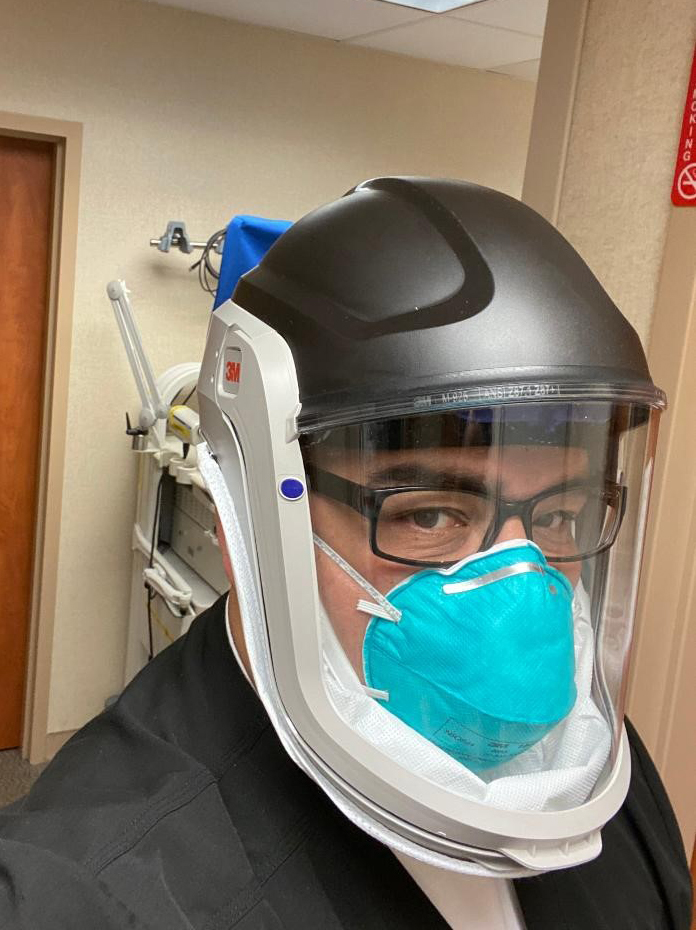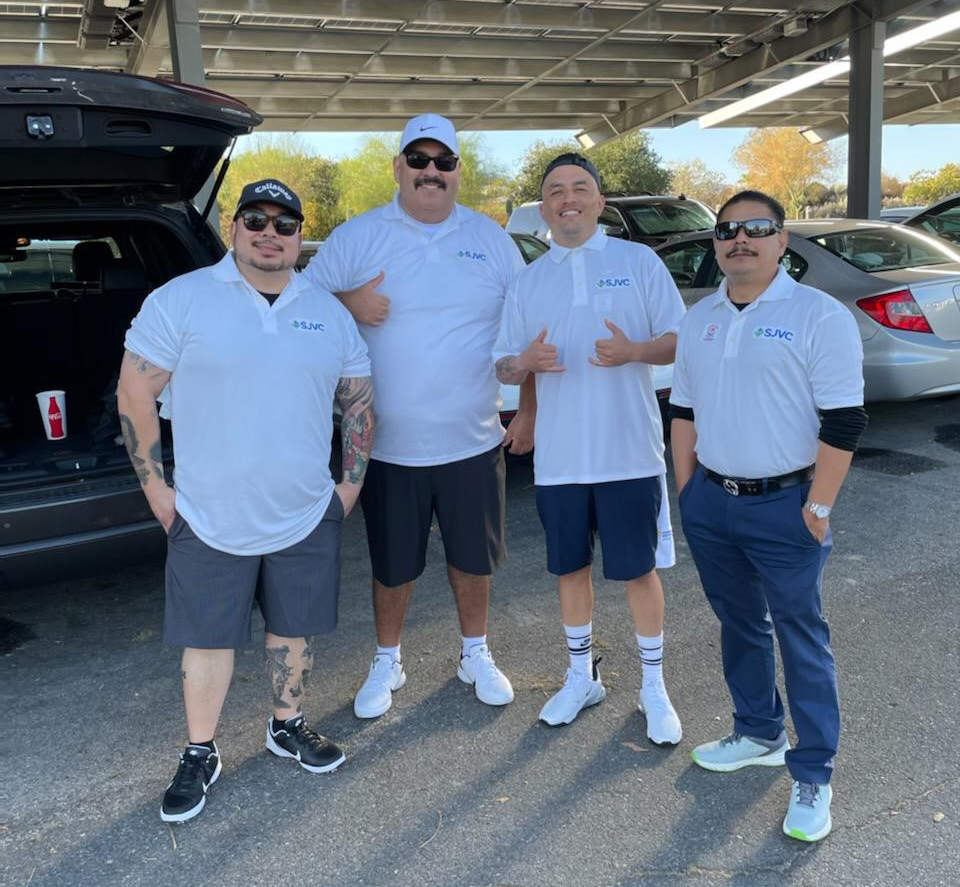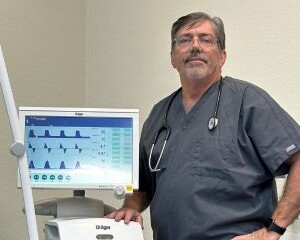Q&A with BSRT Student Daniel Nunez
 After 16-years as a Respiratory Therapist Daniel Nunez knew that if he wanted to boost his career options and compensation level, he needed to bump up to a Bachelor’s degree education level. The perfect opportunity presented itself and he snapped it up. No looking back.
After 16-years as a Respiratory Therapist Daniel Nunez knew that if he wanted to boost his career options and compensation level, he needed to bump up to a Bachelor’s degree education level. The perfect opportunity presented itself and he snapped it up. No looking back.
What was the education and training program opportunity that came your way?
I work for Antelope Valley Medical Center, a union hospital that is among those that participate with the State of California to provide 100% funding for an online Bachelor of Science Respiratory Therapy (BSRT) program (like the one) currently offered at San Joaquin Valley College (SJVC). It’s an accelerated program that can be completed in as few as 16-months, offered exclusively to Registered Respiratory Therapists that is geared to place more RRTs into positions of leadership and advancement.
This will revitalize the respiratory field, big time. This Bachelor’s program will definitely open a pathway to the future in the Respiratory Care field.
Why did this advance education and training appeal to you?
I’d been a Registered Respiratory Therapist for 16-years and the only thing that prevented me from getting my Bachelor’s earlier is having to work 2-3 night shift jobs as sole provider for my family. My wife, Tricia, was raising our three kids at home. She got her Bachelor’s and Master’s degrees and has recently gone to work part-time, so the timing was great.
Over the years, every Director I’ve encountered have said I have natural leadership qualities and that I should further my education to become a manager or director. I knew I needed a higher degree before I could take that kind of leadership position. A Bachelor’s degree would also impact future advancement and higher pay.
What is the BSRT program’s online experience like?
It’s super user-friendly, self-paced. There are deadlines every week, but you can easily accomplish the assignments – even working full time.
It’s all remote: Instructors direct you to answer a few questions: follow lesson plans, chapter reviews, reading connections – most of it is you and the computer. I spend about 12-hours a week on the BSRT program. I like to get As and, so far, I’ve made the Dean’s List every 5-weeks.
Any struggles?
The teachers are great, and they give you a good access to them. I have a little anxiety in wanting to know how I did on a paper, discussion, or grades, and sometimes there’s a little lag time with teachers who don’t grade papers immediately. I like the immediate feedback, so I know if I need to spend a little more time on something. I like to stay on track to stay motivated.
How are you balancing school, family, and work?
Having my 9-year-old son, Dominic, wanting to play – that’s the hardest factor for me. But I think it’s good for him and my two daughters to see me doing well in school. It boosts their confidence to see me getting As in my classes.
 What are your current responsibilities as a Registered Respiratory Therapist (RRT)?
What are your current responsibilities as a Registered Respiratory Therapist (RRT)?
As the Lead Respiratory Therapist, I show up to work an hour earlier than other RTs and divide the work load and designate staff by experience. The Lead is more of a facilitator and I only provide patient care when a higher level of skill is needed – like pediatrics or NICU (Neonatal Intensive Care Unit). I have some administrative duties, like staff schedules for about 52 staff members, including Respiratory Therapists. I make assignments according to availability and skill level.
How will your Bachelor’s degree change your role?
The Bachelor of Science credential (in progress) has already made a huge impact on my position in just the last 4-months. The material you learn – how to communicate more effectively – is the big driver here. My weakness has always been communication with staff in highly stressful situations. At 6’ 2” and 340 lbs., it’s a humbling experience to say I need to improve that weakness. With the education I’m receiving now at SJVC, it’s the biggest thing I can come away with – and I’m already winning.
How does ‘better communication’ make the transfer from idea to fact?
English has never been my strong suit, but there is software that changes your approach, articulates how you sound in an email or paper and instills confidence that gives you a huge advantage and definitely makes the course – and supervision responsibilities – easier.
How will your advance degree impact those you supervise?
I have a huge advantage over RTs who don’t have that BSRT experience. So, as a lead therapist with a certain level of influence, I want to elevate as many people around me as I can; expose a path to others that they can lift higher. Fifteen RRTs in my department have already enrolled in the BSRT program.
A Bachelor’s degree gives you the skills to better run a department and will also set you up to meet deadlines and have that type of structure for yourself and those you supervise.
What is your vision for your future?
I need constant challenge and to improve my well-being and that of those around me. I want to be part of a foundation that supports and motivates others to do better. I’m going to try to achieve a Master’s degree and just hold that level. My thinking stays in the future.
What has this BSRT program meant to you on a personal level?
This program makes me remember why I chose the career I did. Sometimes we need to reflect and appreciate our life and what our worth is. I want to be one of the best therapists around. The passion is always there but to unlock whatever else is in there, I needed this education.
This program helped me to pause…take a deep breath…and to paint a clear picture of my future.
You might also like
More stories about
Request Information
All fields using an asterik (*) are required.


